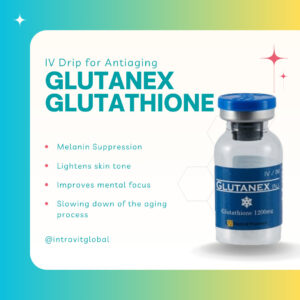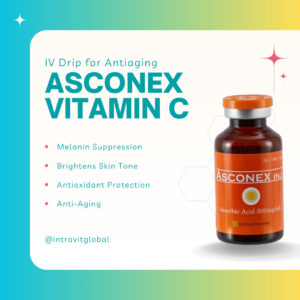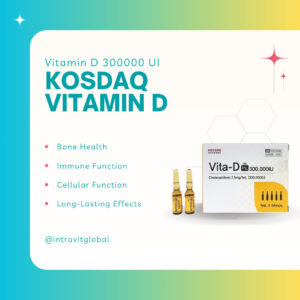The Truth About Vitamin C: Should You Supplement?
Table of Contents

The Truth About Vitamin C: Should You Supplement?
Vitamin C is one of the most popular supplements on the market today, praised for its numerous health benefits, from boosting the immune system to enhancing skin health. But do you really need to take vitamin C supplements to stay healthy? In this article, we’ll break down the facts about vitamin C benefits, its role in immune support, and whether or not you should consider adding it to your daily routine.
What is Vitamin C?
Vitamin C, also known as ascorbic acid, is a water-soluble vitamin that plays a vital role in many bodily functions. It is essential for the repair of tissues, the formation of collagen, and the proper functioning of the immune system. Since the human body cannot produce or store vitamin C, we must get it from our diet or supplements.
Key Vitamin C Benefits for Overall Health
Vitamin C is much more than an immune booster. Here are some of the top benefits that this powerful vitamin provides:
1. Boosting Immune Support
One of the primary reasons people turn to vitamin C supplements is to strengthen their immune system. Vitamin C enhances the production of white blood cells, which help the body fight off infections and illnesses like the common cold.
2. Promoting Collagen Production for Skin Health
Vitamin C is crucial for the production of collagen, a protein that keeps your skin firm, elastic, and youthful. Collagen also helps in wound healing and maintaining strong hair and nails, making vitamin C benefits vital for beauty and skincare.
3. Antioxidant Power: Fighting Free Radicals
Vitamin C acts as a powerful antioxidant, protecting cells from damage caused by free radicals—unstable molecules that contribute to aging and the development of diseases such as cancer.
Vitamin C and Immune Support: What the Research Says
The connection between vitamin C and immune support has been well-researched. While vitamin C may not prevent you from getting sick, studies show that it can shorten the duration and reduce the severity of colds and other respiratory infections. This makes it especially beneficial during cold and flu season or for those with weakened immune systems.
Should You Take Vitamin C Supplements?
While many people get enough vitamin C from fruits and vegetables, certain individuals may benefit from vitamin C supplements. People who smoke, are exposed to pollution, or have poor diets may have higher vitamin C needs. Additionally, if you frequently get sick or want to enhance your skin health, supplements may offer additional support.
How Much Vitamin C Do You Need Daily?
The recommended daily intake (RDI) of vitamin C for adults is 90 mg for men and 75 mg for women. Smokers or those under stress may require higher amounts. Most people can easily meet their vitamin C needs through diet, but vitamin C supplements can help ensure you’re consistently getting enough.
Natural Sources of Vitamin C
Some of the best food sources of vitamin C include:
- Oranges
- Strawberries
- Kiwi
- Bell peppers
- Broccoli
- Brussels sprouts
Eating a diet rich in fruits and vegetables can provide all the vitamin C benefits your body needs.
Benefits of Vitamin C Supplements Over Food Sources
While whole foods should always be your first source of nutrients, vitamin C supplements can be helpful for those who struggle to get enough through diet alone. Supplements ensure a consistent intake and are convenient for people with busy lifestyles or those who prefer a controlled dosage.
Common Myths About Vitamin C Supplements
Myth: “Vitamin C supplements prevent colds.”
Fact: While vitamin C may reduce the severity and duration of colds, it cannot completely prevent them.Myth: “You need large doses of vitamin C for it to work.”
Fact: Your body only absorbs a certain amount of vitamin C at a time. Large doses may not offer added benefits and can lead to side effects.
How Vitamin C Supports Skin Health
Beyond its immune-boosting properties, vitamin C is a powerhouse when it comes to skincare. It helps with the formation of collagen, which keeps the skin firm and prevents premature aging. Vitamin C also brightens the skin, reduces hyperpigmentation, and protects against sun damage.
The Role of Vitamin C in Wound Healing
Vitamin C plays a crucial role in wound healing. It aids in collagen production, which is necessary for repairing tissue damage. A deficiency in vitamin C can slow down the healing process, making supplementation important for those recovering from surgery or injury.
Are There Risks to Taking Too Much Vitamin C?
While vitamin C is generally safe, taking more than 2,000 mg a day can cause side effects such as nausea, diarrhea, and stomach cramps. It’s best to stick to the recommended dosage unless advised otherwise by a healthcare professional.
How to Choose the Right Vitamin C Supplement
When choosing a vitamin C supplement, look for products with high bioavailability, meaning the body can absorb and use the vitamin efficiently. Forms like ascorbic acid or liposomal vitamin C are highly effective. Also, check for third-party testing to ensure quality and potency.
Intravit Global: Your Trusted Source for Vitamin C Supplements in the UK
Looking for reliable vitamin C supplements to boost your health? Intravit Global offers premium vitamin C products designed to enhance immune support and overall wellness. With fast delivery across the United Kingdom, including major cities like London, Manchester, Birmingham, and Glasgow, Intravit Global makes it easy to access high-quality supplements. Shop their full range of vitamin C products here and support your health today!
Conclusion
Vitamin C is essential for a strong immune system, healthy skin, and overall wellness. Whether you choose to get your vitamin C from food or supplements, ensuring an adequate intake is crucial. While most people can meet their needs through a balanced diet, vitamin C supplements can be a helpful addition for those who need extra support. Always consult with a healthcare professional before starting any new supplement regimen.
FAQs
Can vitamin C prevent colds?
Vitamin C may reduce the severity and duration of colds but does not prevent them entirely.
What is the best time to take vitamin C supplements?
Vitamin C can be taken any time of day, but taking it with meals may enhance absorption.
Can vitamin C supplements improve skin health?
Yes, vitamin C helps boost collagen production, brightens skin, and reduces the appearance of fine lines and wrinkles.
Is it better to get vitamin C from food or supplements?
Whole foods are the best source of vitamin C, but supplements can help those who have trouble getting enough through diet alone.
How does vitamin C benefit the immune system?
Vitamin C supports immune function by boosting the production of white blood cells, which help the body fight infections.
-
Vitamin Drips
Glutanex Glutathione 1200mg IV Drip for Antiaging, Melanin Suppression, Antioxidant Skin Brightness Benefits
£20.00 – £120.00 Select options This product has multiple variants. The options may be chosen on the product pageRated 0 out of 5 -
Vitamin Drips
Asconex Vitamin C (Ascorbic Acid) IV Drip for Antiaging, Melanin Suppression, Antioxidant and Skin Brightness Benefits
£10.00 – £70.00 Select options This product has multiple variants. The options may be chosen on the product pageRated 0 out of 5 -
Vitamin Drips
Kosdaq Vitamin D 300000 IU Cholecalciferol per vial box of 10 ampoules
£20.00 – £140.00 Select options This product has multiple variants. The options may be chosen on the product pageRated 0 out of 5
Checkout our Facebook Page and leave your review about our Health Care Products.






